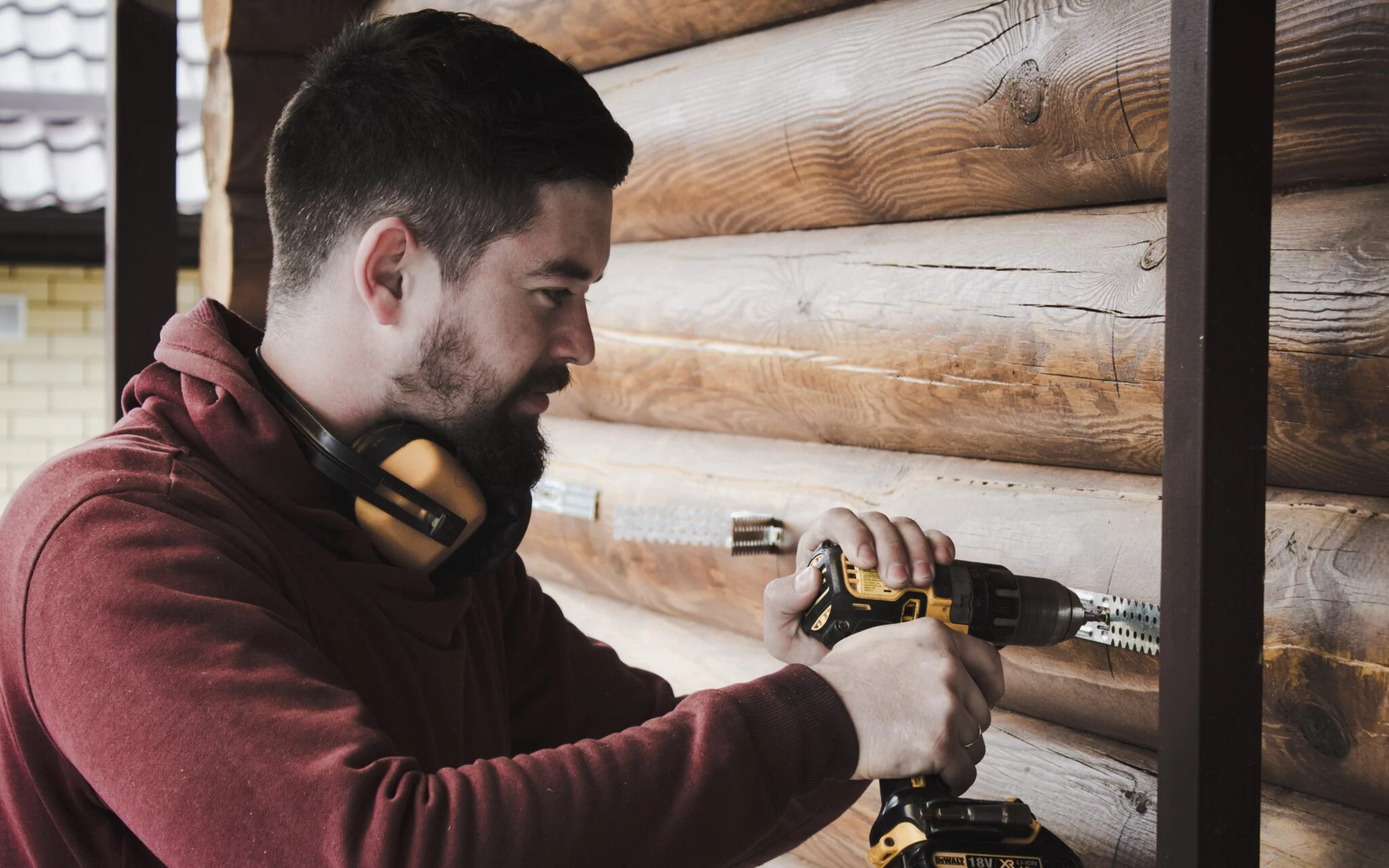A carpenter is a skilled tradesperson who specializes in working with wood to construct, install, and repair structures, furniture, and other wooden items. They are skilled professionals who can help you achieve your desired results, whether you need a custom piece of furniture or a new structure built. Hiring a carpenter can provide you with high-quality workmanship, customization, safety, time and cost savings, and versatility.
Make your interview process 3X better and smarter by asking the right questions for your candidate. Look beyond academics and college degrees. Highlight the carpentry skills and competencies like never before.
General Roles and Responsibilities of a Carpenter
The general roles and responsibilities of a carpenter may vary depending on the specific job, but some common ones include:
- Reading blueprints and drawings to understand the project requirements.
- Measuring and marking cutting lines on materials such as wood, metal, or plastic.
- Cutting, shaping, and joining materials using hand and power tools, such as saws, drills, and hammers.
- Installing structures, such as windows, frames, floorings, and roofs.
- Inspecting and repairing damaged structures or fixtures.
- Maintaining and repairing tools and equipment.
- Following safety procedures and regulations at all times.
- Communicating with other workers and supervisors to ensure the project is completed to the client’s satisfaction.
Skills and Experiences a Carpenter should have:
A skilled carpenter should have a combination of technical skills, physical abilities, and creative vision to excel in their job. Here are some of the key skills and experiences a carpenter should have:
- Technical skills: A carpenter must have strong technical skills, including the ability to read blueprints and plans, knowledge of building codes and regulations, and proficiency in using power tools and other construction equipment.
- Attention to detail: Precision is a crucial part of carpentry, and carpenters must have a keen eye for detail to ensure the finished product is of the highest quality.
- Physical abilities: Carpentry is a physically demanding job, and they should be in good physical shape and able to lift and carry heavy materials.
- Math skills: Carpentry often involves complex measurements and calculations, so carpenters should have strong math skills.
- Communication skills: They often work on teams and must be able to communicate effectively with other construction professionals, such as architects and project managers.
- Creative vision: They can visualize how a project will come together and bring creative ideas to the table to enhance the design.
- Experience: Experience in carpentry is essential, as it enables carpenters to develop a broader range of skills, troubleshoot problems, and provide expert advice to clients.
Carpenter Operational and Situational Questions
Here are some examples of operational and situational questions that could be asked in a carpenter interview:
- Can you describe your experience with different types of wood and how to work with them?
- What tools and equipment are essential for a carpenter, and how do you maintain them?
- How do you ensure safety on a construction site while working with power tools and heavy equipment?
- Can you provide an example of a time when you had to troubleshoot a problem while on a job site?
- How would you handle a situation where you discover the materials provided to you are of poor quality?
- Can you describe a time when you had to work with a difficult client, and how did you handle the situation?
- What is your process for managing multiple projects simultaneously and ensuring they are completed on time?
Carpenter Role-specific questions
Here are some role-specific questions that you can ask a carpenter during an interview:
- What types of carpentry work have you specialized in during your career?
- Can you describe your experience in working with different types of wood and materials?
- Have you ever had to troubleshoot a problem while working on a project? How did you go about finding a solution?
- How do you approach creating a project plan and estimating the materials and time needed for the job?
- Have you ever worked on a project with a tight deadline? How did you manage your time to ensure it was completed on schedule?
- How do you ensure that the finished product meets the customer’s expectations and specifications?
- Can you describe a time when you had to communicate effectively with other contractors or team members on a project?
Carpenter Behavioral questions
Here are some behavioral questions can ask a carpenter during an interview:
- Tell me about a time when you had to solve a difficult problem on a carpentry job.
- Describe a situation where you had to work with a difficult or demanding customer. How did you handle it?
- Can you give an example of how you have worked effectively in a team to complete a carpentry project?
- Describe a time when you had to deal with an unexpected challenge on a carpentry job. How did you adapt and overcome the situation?
- Tell me about a time when you had to prioritize tasks on a carpentry project. How did you decide which tasks were most important?
- Describe a situation where you had to communicate complex carpentry concepts to someone with little or no knowledge of the field.
- Give an example of a time when you had to ensure the safety of yourself and others on a carpentry job.
Conclusion
Hiring a skilled carpenter can provide numerous benefits, including high-quality workmanship, customization, safety, time and cost savings, and versatility. As a recruiter, it is essential to ask the right questions during the interview process to assess the technical, physical, and creative skills and experiences of a carpenter.
Operational, situational, role-specific, and behavioral questions can help you evaluate a candidate’s suitability for the job and ensure that they have the necessary skills, experience, and mindset to excel in the role. By hiring a carpenter who possesses these attributes, you can ensure that your project will be completed to the client’s satisfaction and meet the highest standards of quality and craftsmanship.



